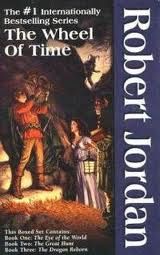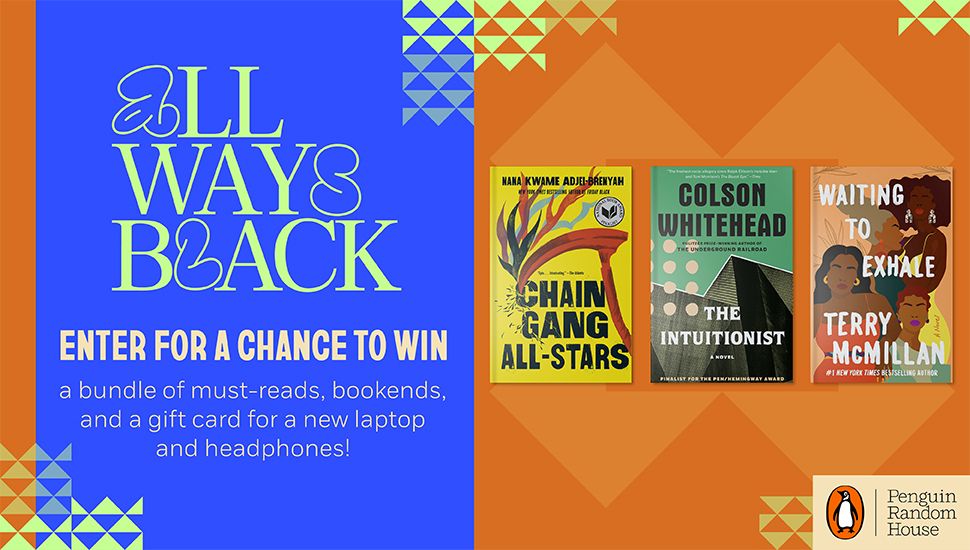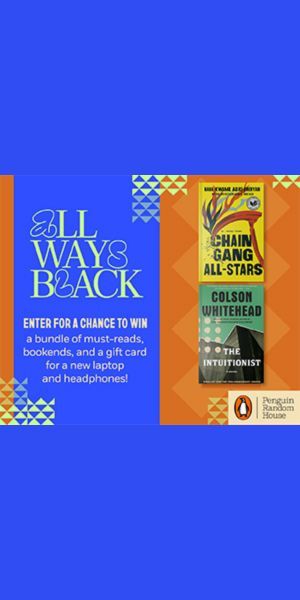
My Reading Reset: The Wheel of Time
This is a guest post from Rich Rennicks. Rich is a writer and book marketing consultant. He writes about Ireland at atriptoireland.com, and is putting the finishing touches to an ebook travel guide on touring Ireland with kids. Follow him on Twitter @RichRennicks.
_________________________
 Tolkien’s The Lord of the Rings is one of those books that many true fans re-read annually. I enjoyed the movies, but as a teenager gave up on the trilogy while Frodo was still in the swamps. I never thought that I had a book or series that I cared about enough to re-read often, never mind every year, until I looked through ten years of a reading log I used to keep, and realized I’ve been rereading Robert Jordan’s epic fantasy series The Wheel of Time (WoT) approximately every two years for the last decade.
Tolkien’s The Lord of the Rings is one of those books that many true fans re-read annually. I enjoyed the movies, but as a teenager gave up on the trilogy while Frodo was still in the swamps. I never thought that I had a book or series that I cared about enough to re-read often, never mind every year, until I looked through ten years of a reading log I used to keep, and realized I’ve been rereading Robert Jordan’s epic fantasy series The Wheel of Time (WoT) approximately every two years for the last decade.
I was vaguely aware of the book in the mid-1990s, as my brother-in-law devoured them as a teenager, but I didn’t open one until I came across a spine-broken paperback of the first, The Eye of the World, on a book swap shelf in a Sydney hostel in 1998. I read the first 50 pages as we took long bus trips, thinking “It’s alright, but when is something going to happen?”; then all hell broke loose in chapter 4, and there wasn’t a pause for breath for the next five books.
Once I caught up to wherever the series was at that point, new books only came along every three or four years, so it was necessary to reread some of the earlier books to remind myself what all the different characters were doing. But, even after I passed the point of memorizing certain passages and recalling the lineages of the characters with perfect clarity, I still found myself going back to the books with a writer’s eye: How did Jordan make us care about his characters? How did he keep the action moving yet fold in the backstory? How did he make these books so damn compelling?
As a reader or writer, I’m intrigued by the question of why we reread favorite books instead of seeking new pleasures. Surely the thrill of the new book is one of the joys of reading? I can only answer for myself, but increasingly it’s because WoT reminds me of the possibilities of books after I’ve struggled through a few duds.
(Oh, the literary snobs are rolling their eyes and/or spitting their cappuccino foam all over their monitors at that declaration…)
But, yes, let me say it again, WoT remind me of the possibilities of books/stories. By this I mean: it has characters you can relate to, care about, and root for; oversize adventures that are like nothing you’ve experienced but to which the characters react in ways you can understand; a world that is utterly different, yet similar enough to be convincing; and, a reading experience that is fun, relaxing, and doesn’t feel like work. Call it “fiction” not “literature” if you must desperately cleave to some sort of categorization, but that shouldn’t give “literature” permission to be dull.
(Yes, I’ve just outed myself as “a lover of story,” rather than words or writing, as one bookseller once dismissively put it. So be it.)
The Wheel of Time is by no means a perfect series. It has its flaws. But, having tried many of the major fantasy series, WoT is the universe I enjoy, and Jordan was clearly an author who loved people. I don’t want to bash Game of Thrones (but really it’s so astonishingly puerile, a teenaged boy’s wet dream) or any of the other fantasy series because they have their fans who are just as passionate as I, and just as dis-interested in Jordan’s saga. For want of a better word, WoT imprinted on me a long time ago, and I only have room for one sprawling (13-volume!) fantasy epic in my life . I find myself returning to that world time and again, craving a story that transports, that makes me forget about real life for a couple of hours, and completely immerses me in the sights, sounds, and smells of an exciting adventure.
(I’m not going to go into the plot or describe the characters because it’s a quest fantasy: you’ve seen Star Wars (aka the Cliff’s Notes to Joseph Campbell) so you know the archetypes.)
But, here’s the thing, I actually read less fantasy than other kinds of books. Most of what I read are short stories and novels usually shelved in the “literature” section (although I struggle to define that most days). But, every so often I reach the point of irony overload or finish another serious novel about well-intentioned people versus an uncaring bureaucracy/a dysfunctional family/their inner demons and I start to feel that authors have forgotten how to entertain, how to write believable characters reacting to unbelievable events, or tell stories that offer some hope that right will triumph over might. Yes, I’m old fashioned, yes, I prefer a good story over fancy language, but enough with the navel-gazing serious novels that have no empathy for or understanding of people and only wish to demonstrate the author’s amazing intellect (glaring at you Corrections…).
The Wheel of Time is a great yarn; it has unforgettable characters tossed into a battle not of their making, epic events, good versus evil, and an interesting take on myth and legend. But mostly the characters are convincing, and you sense the author cared about them, cared about people in general, and understands their motivations and thought processes. Too many contemporary authors make characterization a secondary concern to a display of their observations about life, the universe and everything, and many novels fall flat under the weight of cultural judgement without any plot or characters motivating the story.
So the next time I hit a run of dull, unimaginative, or plain pedantic novels, I’ll reach for The Wheel of Time, volume one, The Eye of the World, and read until my faith in the power of fiction is renewed once again.
____________________________
Sign up for our newsletter to have the best of Book Riot delivered straight to your inbox every week. No spam. We promise.
To keep up with Book Riot on a daily basis, follow us on Twitter, like us on Facebook, , and subscribe to the Book Riot podcast in iTunes or via RSS. So much bookish goodness–all day, every day.











